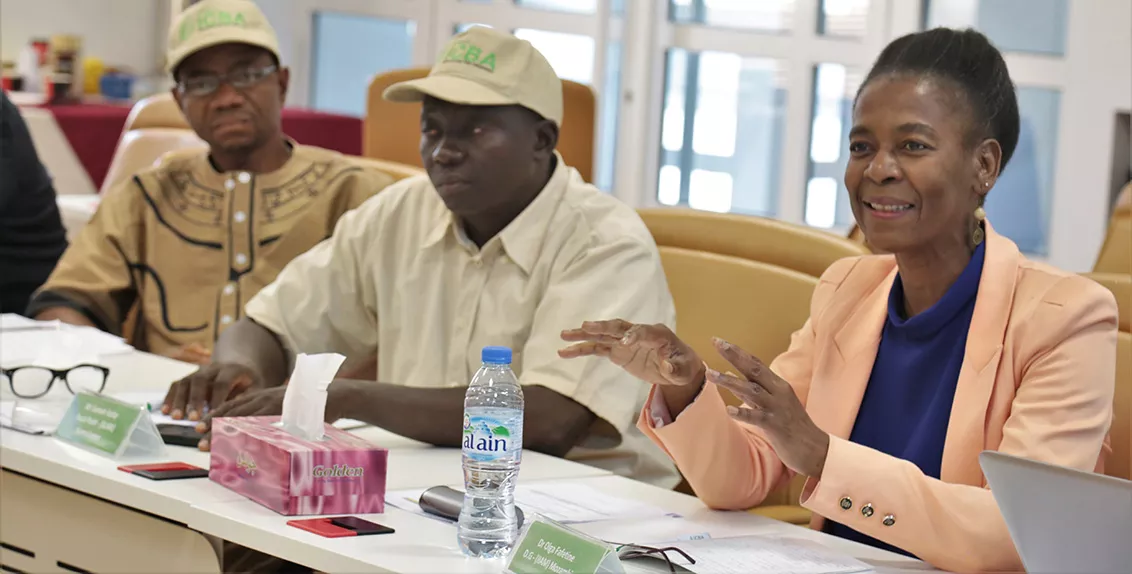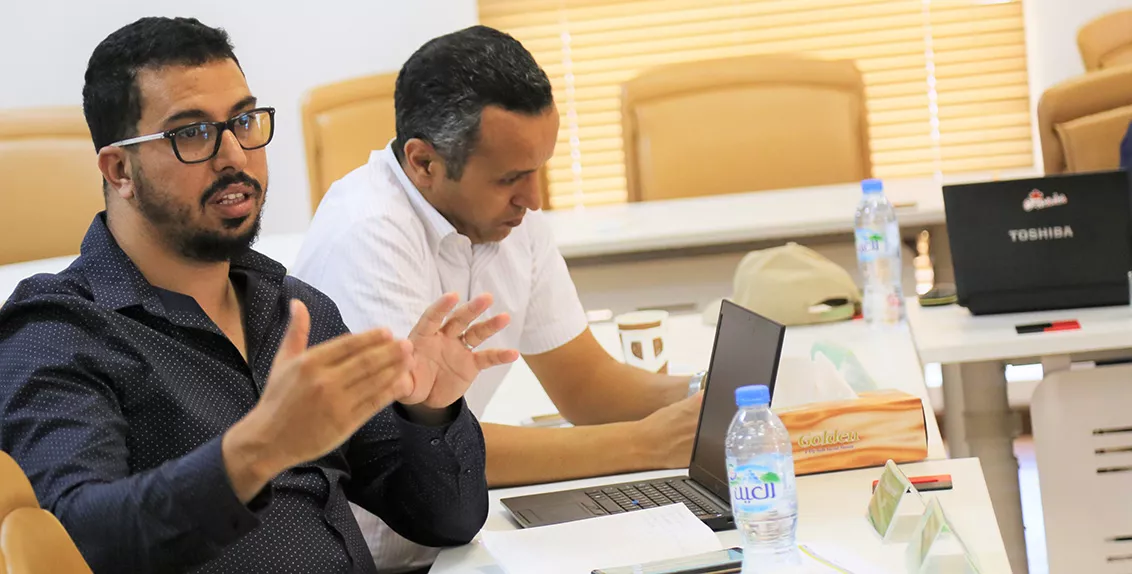ICBA launches major project to boost farmers’ incomes in seven sub-Saharan African countries
29 April 2019
The International Center for Biosaline Agriculture (ICBA) has launched a major project to improve food security and incomes of smallholder farmers, particularly women, in salt-affected areas of seven sub-Saharan African countries.
Titled “Improving Agricultural Resilience to Salinity through Development and Promotion of Pro-poor Technologies” (or RESADE), the four-year project is funded by the International Fund for Agricultural Development (IFAD) and the Arab Bank for Economic Development in Africa (BADEA).
Targeting Botswana, The Gambia, Liberia, Mozambique, Namibia, Sierra Leone, and Togo, the project aims to increase agricultural productivity and incomes of farming communities in salt-affected agricultural areas by introducing salt-tolerant crops and associated agronomic management practices; developing value chains for new cropping systems; and building capacity of farmers and extension workers in salinity resilience and climate-smart agriculture in collaboration with national agricultural research and extension services.
The project began with an inception meeting for project partners at ICBA’s headquarters in Dubai on 24-25 April 2019. Over 30 participants, including directors and technical staff of the national agricultural research centers from the partner countries, attended the inception meeting.
Speaking about the project, Dr. Ismahane Elouafi, Director General of ICBA, said: “We are delighted to launch this significant and timely project with support from our long-term and strategic partners IFAD and BADEA. Salinity is one of the critical issues in sub-Saharan Africa; it is adversely affecting agricultural production, rural livelihoods, economy, and sustainable development in the region. As the world’s leading biosaline agriculture center with about 20 years of experience in managing and rehabilitating salt-affected lands in more than 30 countries, I’m confident that ICBA along with its partners in sub-Saharan Africa will make a difference in the lives and livelihoods of smallholder farmers in the seven target countries.”
For his part, Dr. Malu Ndavi, Lead Technical Specialist at IFAD, said: “The importance of the project lies in the fact that it seeks to empower the national agricultural research systems in terms of addressing salinity, and it involves a significant partner like ICBA, a center of excellence in salinity management. IFAD is very keen to use the results of this project to inform future strategies to address salinity, and future investments, either by IFAD or other organizations, particularly investments by these seven countries for the better livelihoods of people affected by salinity.”
“At the end of this program, we will have a cadre of experts in these countries who will address the issues of climate change as it relates to salinity. The project will support the target countries in implementing their own agricultural strategies and more importantly achieving the Sustainable Development Goals (SDGs), especially SDG 1 and SDG 2,” Dr. Malu Ndavi added.
“This is an important project for us as it will help the target countries to map and identify the affected areas. The project will propose interventions, which include crop varieties that are tolerant of salinity, research practices that are important for preventing adverse effects of salinity, and other methods that can allow farmers to acquire benefits from the salt-affected areas; this can help farmers with increased yield and more income. The project will also help in improving the research capacities of partner research centers through training and acquisition of some scientific equipment,” said Dr. Olga Lurdes J. Faftine, Director General of the Agriculture Research Institute of Mozambique.
Through the project, around 11,550 smallholder farmers in target areas, women making up at least half of the number, are expected to adopt new cropping systems that are resilient to salinity and climate change and utilize climate-smart innovative intensification technologies and practices that increase productivity, and mitigate and prevent further salinization. In target areas, the productivity of saline lands is expected to increase by 30% and economic returns to smallholder farmers by 20%.
Furthermore, the climate-smart and salinity-resilient agricultural models and approaches will be incorporated into the national agricultural development policies and strategies in the seven target countries.
As part of capacity development, ICBA will support the establishment of seed production units, strengthen cooperatives, facilitate agricultural value-chain linkages, and engage with policy- and decision-makers to ensure the availability of the necessary inputs and a conducive environment for scaling up project results.












